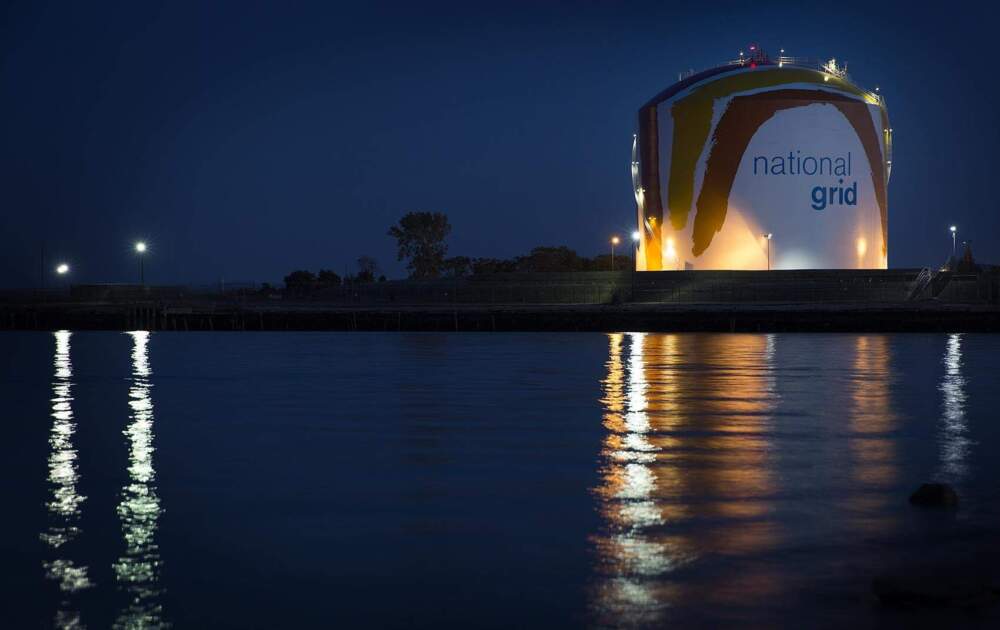Advertisement
Commentary
Amid the climate doom, a bright spot in Mass.

I imagine the Department of Public Utilities (DPU) isn’t exactly top of mind for most Massachusetts residents. The three-member body, which is appointed by the governor, regulates our electric, natural gas and water utilities, and oversees some aspects of the state’s transportation safety guidelines.
Its proceedings are wonky and can be difficult to understand, but its decisions can have a tremendous impact, affecting everything from your monthly utility bills, to whether a new gas pipeline will be permitted, to the types of incentives offered by the Mass Save energy efficiency program.
On Dec. 6, the DPU made a historic decision — for the better. The order was the result of a three-year process, initiated by then-Attorney General Maura Healey, during which the state has been considering the future of the natural gas industry. In the most basic of terms, the order represents a pivot point in the state’s strategy for decarbonizing the buildings sector, which was responsible for 36% of Massachusetts’ carbon emissions in 2020. It puts in motion a plan to transition away from the natural gas distribution system that utilities operate today. Even more plainly: this decision by DPU is one big, important step of many to stop the use of natural gas once and for all in the state, a reality that was unthinkable outside of environmental circles even five to 10 years ago.
[The DPU decision] puts in motion a plan to transition away from the natural gas distribution system that utilities operate today.
It was the culmination of years of work, in an arena where environmental advocates like me aren’t accustomed to seeing many wins. (Historically, we’ve tried “not to lose” when appearing before DPU.)
So, how’d it happen? When the state Legislature passed the Climate Roadmap law in 2021, it updated the DPU’s mission to consider reductions in greenhouse gas emissions for the first time ever. Environmental advocates were hopeful for change, but initially, the three commissioners seemed to continue relegating greenhouse gas emissions to an afterthought. For example, just last year, the nonprofit I work for, Acadia Center and others, argued before the DPU that a proposal to provide gas service to a town that previously did not have it was at odds with Massachusetts’ climate goals and not in the public interest. We noted that the town involved did not reasonably consider reasonable alternatives, like electrification. But our arguments were rejected — and the town received approval for gas service.
Things started to change once Gov. Healey took office last January. The DPU members she appointed, including Commissioner Staci Rubin (formerly of the Conservation Law Foundation) and Jamie Van Nostrand (who spent a long time fighting the coal industry in West Virginia), promised to create a “21st century DPU.”
And what they delivered earlier this month was an unequivocal win for the commonwealth: a win for climate, a win for public health, a win for environmental justice, and a win for consumers. We hear a lot about what’s wrong with government these days — think partisan rancor and gridlock in Congress — but this is a clear example of what government can accomplish, and a decision that will put us on the right path to meet our state’s decarbonization targets.
As an environmental advocate, you sometimes feel like the Greek myth Cassandra, cursed with the ability to see the future but never believed.
As an environmental advocate, you sometimes feel like the Greek myth Cassandra, cursed with the ability to see the future but never believed. You feel as though you are presenting cold, hard facts and data, but you’re told your ideas are pie-in-the-sky. Therefore, it’s incredibly gratifying to read this order, which validates those arguments and flips the traditional narrative.
The order is too long to fully summarize here (check out the summary in our press release). The most important thing to understand is that it covers concepts at the macro-level (such as preventing so-called “renewable” natural gas into the general gas supply, because of questions about its cost, availability and results, in terms of emissions reductions) and at the micro-level (like changing the way gas utilities can recover rates to disincentivize adding new gas customers).
The order also affirmed the state’s commitment to electrification, envisions the large-scale decommissioning of the natural gas system, and requires coordinated planning between gas and electric utilities (which had not previously been required).
As impressive as this decision by the DPU is, it's only a midpoint, not the end, and will require careful and thoughtful implementation. What will result from this order is a broader process that will span many years if not decades. But the decision this month will set the other key dominos in motion. As the DPU states, for this order’s vision to be implemented, many legislative changes are required too.
I look forward to working with the House, the Senate, and the governor to deliver on those changes and deliver on the promise of a decarbonized future.
